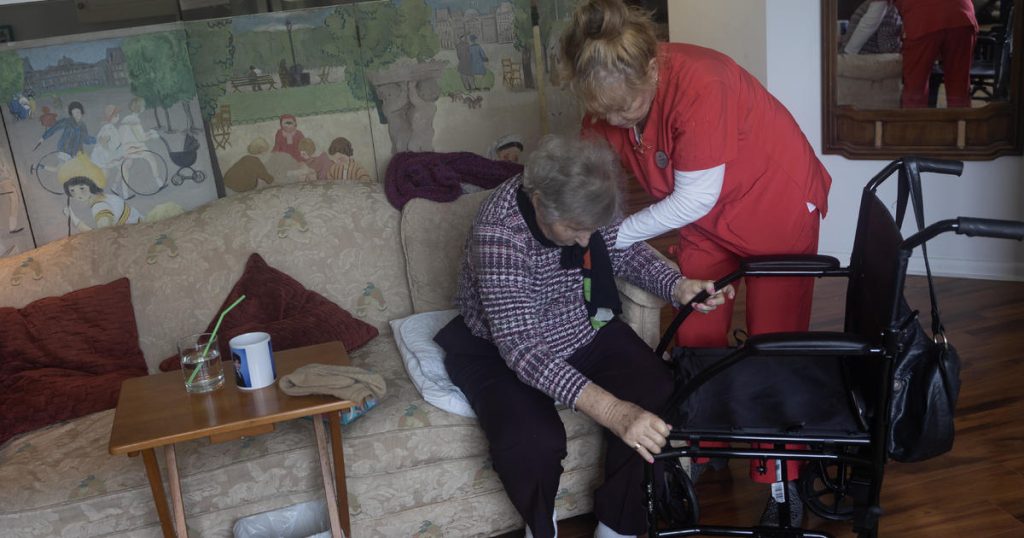Vice President Kamala Harris is proposing Medicare at Home, an expansion of Medicare to cover the costs of in-home aides for seniors, with the goal of helping families avoid nursing home costs. The plan would complement an existing proposal to expand the child care tax credit, making it more beneficial for caregivers in the “sandwich generation” who are juggling responsibilities for older parents and children. Harris noted that her plan is an expansion of Medicare, rather than Medicaid, allowing it to coexist with private insurance and provide more options for families.
The proposal targets adults caring for aging parents, a demographic that includes about a quarter of U.S. adults. According to a Harris campaign official, undecided voters in this group could be influenced by proposals that address financial security and healthcare needs for older Americans. This could be significant in an election where healthcare is a major issue. Data from the Alliance for Retired Americans and AARP shows that many caregivers are struggling financially, and there may be a connection between these struggles and voting preferences among older Americans in battleground states.
The cost of implementing Medicare at Home is estimated to start at $40 billion annually, according to a Brookings Institution study cited by the campaign. However, the ultimate cost could be higher depending on how generous Congress is willing to be. The plan could potentially lead to savings in other areas, such as reduced spending on nursing homes and increased tax revenue as informal caregivers enter the labor market. Harris plans to pay for the expansion by broadening the Medicare Drug Price Negotiation Program and implementing other reforms aimed at lowering drug costs, though more aggressive negotiation may be needed to cover the full cost of the proposal.
The proposal would cover all Medicare enrollees who are unable to perform activities of daily living independently, as determined by healthcare professionals. It would also include coverage for those with serious cognitive impairment. However, individuals with higher incomes may have to pay a larger share of the costs out of pocket. The specifics of the coverage, such as which types of home care aides are covered, could impact both the cost and utilization of the plan. While the campaign did not address payments to family members for caregiving, advocates hope that such provisions could be included to make home care more affordable and accessible.
Democrats have criticized the Trump administration for alleged cuts to Medicare’s budget, though Trump has denied supporting such cuts. Harris’s proposal aims to address the growing need for elder care in the U.S. and could potentially have a significant impact on caregivers and older Americans. By expanding Medicare to cover home care services, the plan could provide financial relief to families and improve the quality of care for seniors. The feasibility and success of the proposal will depend on congressional support and the ability to negotiate lower drug prices to fund the expansion of Medicare benefits.


